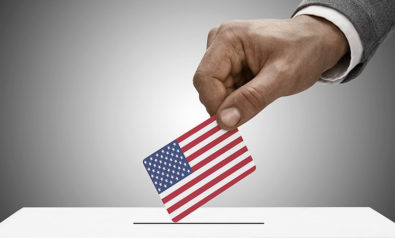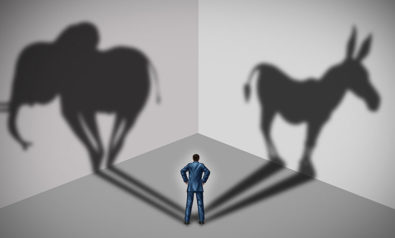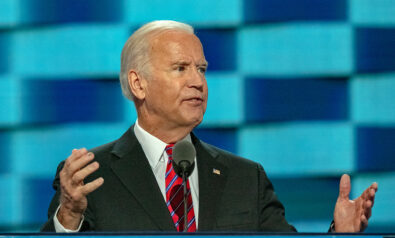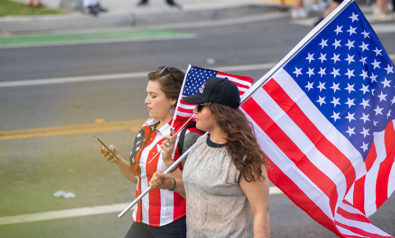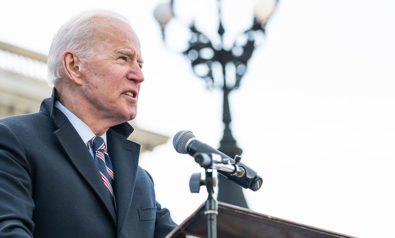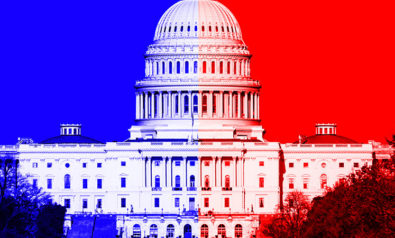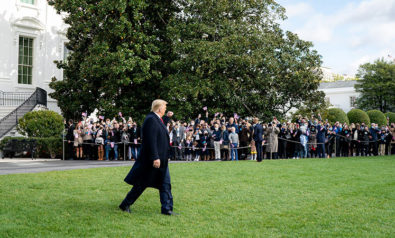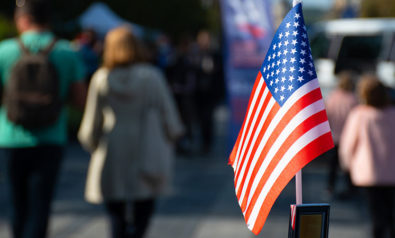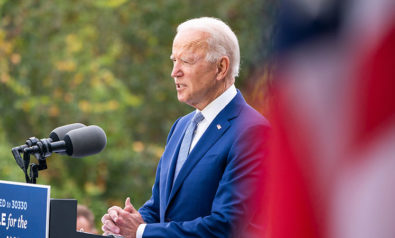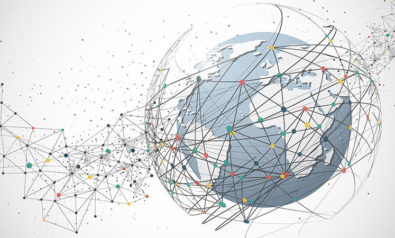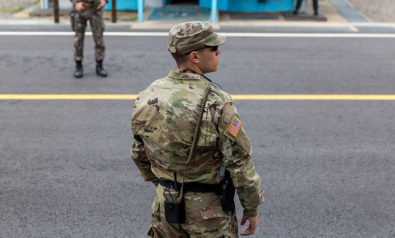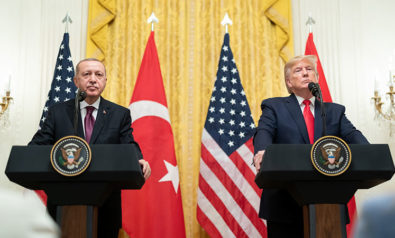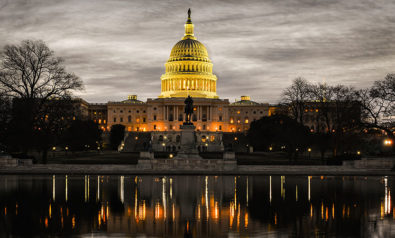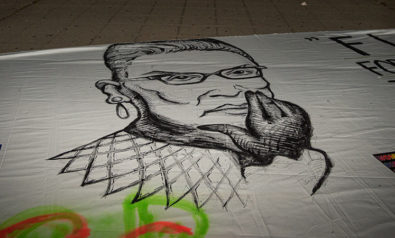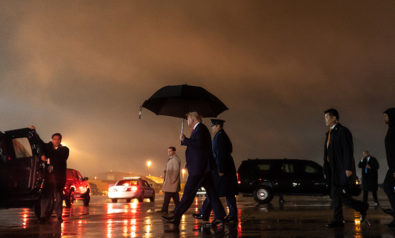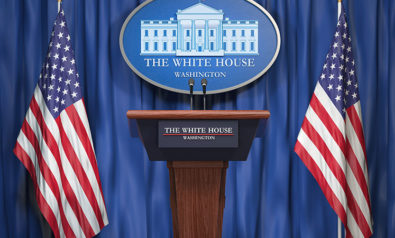The presidential elections in Myanmar have been set for November 8, just days after the US goes to the polls on November 3. Both countries have a history of keeping minorities in line by blocking their ability to vote and hold office. A brief comparison between the two is enough to illustrate three troubling points: that an established democratic tradition does not necessarily erode such barriers over time, that it most certainly does not guard against the creation of future barriers, and that older democracies may nevertheless use the same voter suppression tactics as younger ones.
360˚ Context: The 2020 US Election Explained
In November, both US President Donald Trump and Burmese State Minister Aung San Suu Kyi will be seeking reelection for their respective roles. In addition to being heads of state, both are the de facto leaders of their respective parties, and each wields a unique brand of populism. They both have exhibited substantial failings when it on matters of race and ethnicity during their current terms: Trump in his response to the Black Livers Matter movement, and Suu Kyi in her defense of the Rohingya genocide.
Voter Equality
What is interesting to note is that the Black Livers Matter movement and the Rohingya genocide both share a dimension of demographic politics. African slaves were first imported to the British colony of Virginia in the 17th century, while the Rohingyas are believed to have arrived with British colonialists starting in the 19th century. Both groups have suffered systemic violence stemming from these histories, the former because of race and the latter because of both race and religion, with their right to vote consistently obstructed. While the Rohingya face outright exclusion, African Americans continue to face voter suppression tactics despite the many strides that have been made toward voter equality in the United States.
The major difference between these two electoral processes is that November will mark the 59th US presidential election but only the second free vote Myanmar has had in 25 years. It is easy to assume that the US, being the modern world’s oldest democracy, would have a more inclusive voting process than Myanmar, whose shaky democratic transition was interrupted repeatedly by military coups. However, an argument can be made that voting regulations in both countries exclude the demographics judged to be undesirable by political elites, and these regulations evolve over time as a response to the excluded groups’ attempts to overcome them.
There are many ways to restrict voting by demographic. The most obvious would be to deny citizenship, since only citizens can cast their votes in national elections. Other options include making sure the targeted group cannot vote due to fear or inconvenience, that they have no desirable candidates to vote for, or that their votes count less than other votes.
Both the US and Myanmar have a stratified citizenship system, and they share similarities in their history of denying citizenship as well. In the US, citizens enjoy the most privileges, while neither nationals nor permanent residents can vote or hold office. As an example, Americans born in American Samoa are to this day not considered US citizens, and US nationals like those born in Puerto Rico were not considered US citizens until the Jones-Shafroth Act in 1917. The act superseded the Naturalization Act of 1790 that limited naturalization to “free white persons,” effectively barring Native Americans, slaves and freedmen from obtaining citizenship and the ability to challenge other citizens in the court of law.
In Myanmar, distinctions are made between full citizens, associate citizens and naturalized citizens depending on various factors. To be naturalized as a citizen, an applicant must also be able to speak one of the national languages well (of which the Rohingya language is not one), be “of good character” and “of sound mind.” The last few requirements are sufficiently vague to allow rejections without justification as well as made-up reasons that are difficult to challenge or overturn. No matter their rank, Burmese citizens are issued color-coded national registration cards, and their privileges are given in descending order.
No registration cards were issued to the Rohingyas since the 1970s, and since every step in life, from school enrolment to job applications requires identification, it is no surprise that the Rohingya remain one of the most persecuted and most disenfranchised minorities not only in Myanmar, but globally.
Fear and Bureaucracy
Despite the protection of the Voting Rights Act of 1965 that outlawed disenfranchisement through the use of literacy tests and the requirement of “good moral character” among other criteria, African Americans in the United States still suffer barriers to voter registration and new intimidation tactics around polling stations. The act also does not cover the many ongoing efforts that currently limit voting participation, such as purging rolls, voter caging, gerrymandering and decreasing the number of polling stations. By associating certain party leanings to certain locations and moving patterns, these tactics allow users to exclude demographics deemed unfavorable to their position.
In Myanmar, the Rohingya were issued specific white cards in 2010 that did not confer citizenship but allowed them to vote, suspected to be distributed by the then-ruling party as a vote-buying scheme. The cards were then revoked before the 2015 elections that led to Suu Kyi’s victory. While the Rohingya who do not hold a national registration card cannot vote altogether at the moment, the tactics used by the Myanmar government also rely on capricious bureaucracy to limit the vote.
Since the Rohingya have no right to vote and their candidates are barred from standing for election, the comparisons cannot continue beyond the two categories listed above. But the overlap in voter suppression tactics goes to show that a lengthier democratic tradition is not an automatic guard against voter exclusion. Disenfranchisement takes many forms, and it occurs in democracies irrespective of their age. The consequences of voter suppression are no less dire even if they do not result in immediate life-and-death situations — because disenfranchisement is disempowerment. It is nothing less than the deliberate undercutting of a group’s ability to make itself respected and heard.
*[Fair Observer is a media partner of Young Professionals in Foreign Policy.]
Support Fair Observer
We rely on your support for our independence, diversity and quality.
For more than 10 years, Fair Observer has been free, fair and independent. No billionaire owns us, no advertisers control us. We are a reader-supported nonprofit. Unlike many other publications, we keep our content free for readers regardless of where they live or whether they can afford to pay. We have no paywalls and no ads.
In the post-truth era of fake news, echo chambers and filter bubbles, we publish a plurality of perspectives from around the world. Anyone can publish with us, but everyone goes through a rigorous editorial process. So, you get fact-checked, well-reasoned content instead of noise.
We publish 2,500+ voices from 90+ countries. We also conduct education and training programs
on subjects ranging from digital media and journalism to writing and critical thinking. This
doesn’t come cheap. Servers, editors, trainers and web developers cost
money.
Please consider supporting us on a regular basis as a recurring donor or a
sustaining member.
Will you support FO’s journalism?
We rely on your support for our independence, diversity and quality.



